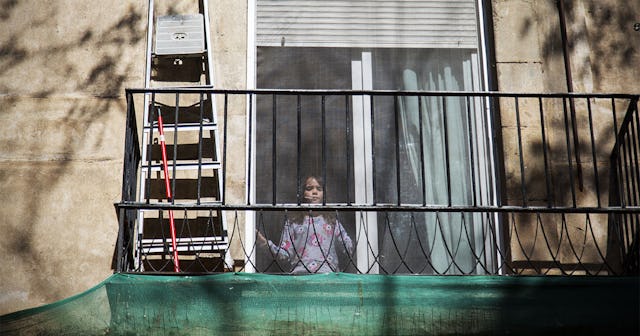Kids In Spain Haven't Gone Outside In Over A Month While Quarantined

Due to the COVID-19 pandemic, children in Spain have not been allowed to leave their homes in over a month
The COVID-19 pandemic has impacted the entire world, infecting people of every age group, gender identity, nationality, and race. However, when it comes to managing the highly infectious and deadly virus, every country has taken a different approach. While the majority of people are practicing social distancing in some form, some governments have taken drastic measures to ensure the health of their people. In fact, in Spain, children haven’t been allowed to leave the house in over a month, even to play in the yard.
On March 14, the Prime Minister of Spain, Pedro Sànchez imposed staunch measures of self-isolation on the country. “The majority of the Spanish population wants to overcome this virus as soon as possible, so I’m convinced the majority will comply,” he said about the orders, which included limiting outings of nonessential workers to buying food or medical supplies or walking the dog. Outdoor exercise was forbidden and restaurants were closed, only able to deliver food. But his rule regarding the children of the country was perhaps the most restrictive — no kids allowed outside of the house for any reason. Initially intended for a period of 15 days, the country’s lockdown is currently extended until at least April 26, and not everyone is happy about it.
Barcelona Mayor and mother-of-two Ada Colau recently expressed her frustration, calling to end the harsh lockdown.”These children need to get out,” she wrote on Facebook, per NPR. “Wait no more: Free our children!”
“Week after week, they fight each other more every day, they have fits of sadness, anger,” she wrote about her children, expressing worry about their “psychological and emotional health.”
“If adults can go out to walk the dog… why must our children keep waiting?”
She argues that children should be allowed to be outside, similar to other countries, “in accordance with health experts’ advice”.
“We are tired of being told that we are soldiers and this is a war, instead of talking about how to take care of our lives and each other,” she added.
There is even a Change.org petition circulating, which has generated more than 55,000 signatures. “Although they’re full-fledged citizens, our girls and boys are not only confined to their homes, but their needs and rights have disappeared from the public debate around this crisis. It’s as if they did not exist,” the petition reads. It asks for “the possibility of being outdoors, receiving the sunlight,” mentioning that Germany, France and the Netherlands have respected the rights of children this way.
But according to El Pais, The Health Ministry has yet to consider relaxing the rules. When asked about it on Monday by journalists, Health Minister Salvador Illa said: “We are going to act with the utmost caution. When we believe that the safety conditions to take this decision are there, based on the data, we will take it and make it known. For now, and we are conscious of the sacrifice, we have to maintain this measure.”
While the country is currently investigating the potential mental health repercussions of quarantining children, the news outlet interviewed experts who expressed concern.
“In a few months, the children who right now are scared and inhibited will start to manifest the traumas and real problems that their mental health is generating in this situation,” psychiatrist Diego Figuera Álvarez, from the Clínico San Carlos Hospital, told them. “What has happened is generating and will generate traumas both in infancy and adolescence,” he says. “Traumatic memories create dissociated memories and they turn into behavioral problems that will manifest when children return to school, or will become somatizations,” (physical manifestations of emotional problems.)
As of April 17, there have been over 188,000 confirmed cases of COVID-19 in Spain and over 19,000 deaths.